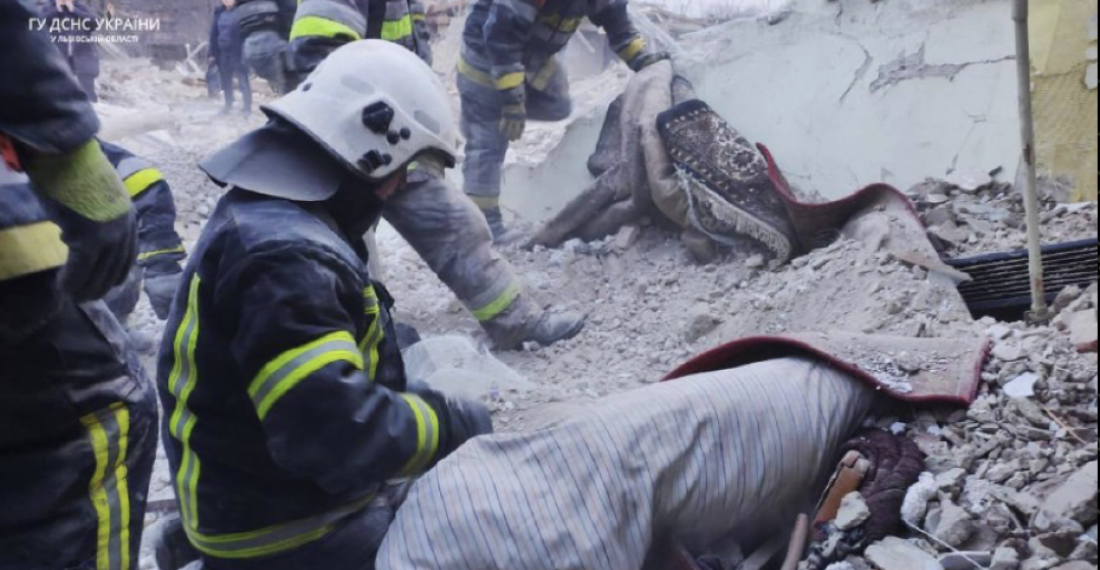Russia has launched its largest wave of missile and drone strikes across Ukraine in months in the early morning hours of Thursday (9 March). As of 11am CET, at least six people have been killed and seven have been injured, and numerous energy infrastructure sites were targeted. Casualty numbers expected to rise.
Attacks were recorded in Kyiv, Lviv, Mykolaiv, Odesa, Zhytomyr, Kirovohrad, Dnipropetrovsk, and Kharkiv Oblasts.
According to the Mayor of Kyiv Vitali Klitschko, at least three people were injured as a result of the missile and drone strikes on the capital city. He added that 40% of the capital's residents were without heating due to emergency blackouts following the attack.
In Dnipropetrovsk Oblast, the governor Serhiy Lysak said that a 34-year-old man died, and two others were injured, with energy infrastructure also suffering "serious" damages. Repair workers are already on site, the governor said.
According to the governor of Kharkiv Oblast Oleh Syniehubov, Russia hit the region with S-300 missiles at least 15 times overnight, striking critical infrastructure. He added that a 71-year-old woman was hospitalised, and a 74-year-old woman was treated at the scene in the village of Pisochyn near Kharkiv.
Meanwhile, Mykolaiv Oblast Governor Vitaliy Kim said that nine missiles were launched at Mykolaiv Oblast and subsequently shot down by air defense. There were no casualties.
Five people were also killed by a Russian missile strike that hit a residential area in the Zolochiv district in Lviv Oblast, according to the region's governor Maksym Kozytsky.
According to the Commander-in-Chief of Ukraine’s Armed Forces Valerii Zaluzhnyi, in total, Russia launched 81 missiles of various types at Ukraine overnight on 9 March. Ukraine's air defense destroyed 34 of the missiles as well as four Iranian Shahed drones.






